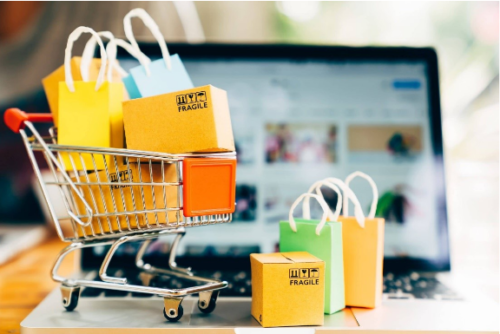Can we expect a better world after the pandemic?
Article Date | 30 September, 2022
.
By Chompa Rahman, Business Student (Y2), LSST Luton campus, winner of LSST’s Writing Competition 2022 with CNN and Tony Blair’s Institute for Global Change
In late December 2019, an unexplained pneumonia outbreak with fever and dry cough occurred and no one had the slightest inkling that this will turn into one of the most significant moments of all time. No one could have predicted how quickly the virus would spread and how much it would affect the world. Death tolls were rising, more people were being hospitalised, tensions became apparent in government and society - and no one knew when or if this would ever end.
Since the pandemic began, it has been a long, sad, and traumatic time for most. However, it appears there is a ray of hope at the end of this lengthy coronavirus tunnel.
Listen to Chompa’s Podcast here:
One of the most frequently asked questions is how the world will emerge once the pandemic is over. This article will look at all the possibilities for what life might be like once we have recovered from the invisible virus that has claimed the lives of millions of people around the world.
Social Interaction, Mental Health and Health Awareness
Since this deadly virus has attacked thousands across the world, social interactions had a huge impact for the worse and people’s mental health issues were soaring. It was a chaotic time for all, and it did come with many challenges not forgetting the main impact of the virus itself.
One of the positives is that people have become more aware of their health and how important it is to sanitise to keep themselves safe. For example, before the pandemic, thousands of people across the world did not know how important hygiene was in terms of washing your hands and what good hand sanitisers could do to protect us.
Not being able to work in the office had also impacted the mental health of employees as they were unable to establish a schedule that works for them, struggle to separate work and home life, or feel alienated, the transition to working from home may have had a detrimental influence on a person’s mental health.
Working from home is here to stay
For many workers, homeworking was not a "typical" working practice prior to the lockdown. People have been expected to work from home whenever possible during lockdowns. The pandemic has reawakened demand for permanent flexible working alternatives, including working from home and hybrid office-home working. Increased flexibility in the workplace could improve job satisfaction and work-life balance for some employees, as well as promote more inclusive working environments for workers with certain disabilities
Because of the widespread usage of videoconferencing during the pandemic, virtual meetings and other elements of work have gained new acceptance. This has enabled many people to continue working from home and earn a living and be more flexible.
There also comes some disadvantages too such as, working from home is not for everyone's personality or skill set. Some employees prefer seeing their managers face to face to help them achieve their goals and aspirations and others like to come out of the home to work with their colleagues in the office setting as there could be distractions at home for those who have children or pets. Other examples are, not all jobs suit home working, decreased staff morale, problems with staff development and staff feeling isolated.
Despite the disadvantages, working from home has been a big hit during the coronavirus outbreak. Some organisations are already preparing to convert to flexible workspaces, reducing overall space requirements and bringing fewer people into offices each day so there is a good chance that this will continue to shine throughout the workforce even after the pandemic is finished.

.
Online Shopping is Booming
Non-essential retailers were compelled to close during the peak of the pandemic, and individuals were advised to stay at home. A substantial percentage of consumers in the United Kingdom have reported changes in their internet buying habits over the past 1 year. In March 2020, around 40% of UK shoppers claimed they were purchasing online more than they were before the coronavirus epidemic. However, by February 2021, this ratio had increased to almost 75%.
People were forced to shop online for anything other than essential items, resulting in a major increase in online shopping. Companies like Amazon took advantage during the pandemic. Despite the reopening of retail outlets in April, which allowed customers to return to their favourite establishments in person, a large percentage of people still choose to purchase online today. Other tendencies in this shift toward digital consumption include online customers looking for the greatest deal, selecting more nutritious options, and purchasing locally whenever possible.
I believe that even after the pandemic, internet sales will continue to rise since consumers have grown acclimated to purchasing online, creating a higher need for retailers to meet.

.
Climate Revolution
Could our experiences with international lockdowns improve the environment, or would we simply go back to "business as normal" as soon as possible? Many city people have seen an improvement in their urban settings, with cleaner-smelling air, quieter, safer roadways, and more assertive wildlife, providing a glimpse of what life may be like in a greener world. Within just a few weeks, the COVID-19 epidemic and the resulting restrictions on travel and other economic sectors by countries all over the world substantially reduced air pollution and greenhouse gas emissions.
This abrupt shift provided scientists with an unprecedented glimpse of data that would have taken years to accomplish under normal circumstances. The COVID-19 pandemic will provide lessons and chances for environmental action in the long run. How we respond to this health crisis will determine how we respond to a climate disaster in the next few decades. Change can lead to the establishment of long-term, sustainable behaviours. Because humans would have experienced scarcity as a result of the outbreak, some practices that are inadvertently good to the ecosystem may survive. For example, reduced travel, personal consumption, and food waste.

.
Is the cashless society going viral?
"Card only, please" is a statement you'll hear a lot these days in stores, cafes, and restaurants. At the start of the pandemic, central banks all around the world took the necessary precautions. Will the UK become permanently contactless? Surely, the trends are pointing in that direction. Cash was used for only 17 per cent of all payments in the UK in 2020, down from 56 per cent ten years ago, according to UK Finance, 13.7 million people did not use hard cash in 2020.
Paying via card is quite easy these days because it eliminates the need to go to a cash machine or carry heavy coins in your wallet or purse. However, as society grows more cashless, those who prefer to have a hoard of cash at home during a crisis may be concerned.
When coronavirus hit, we were advised to use our contactless cards as an extra precaution. Many cafes, restaurants, and supermarkets only accepted card payments, requiring customers to touch their cards when purchasing food or groceries. The contactless payment limit increased from £30 to £100 in October 2021, making it even more convenient for users.
On the other hand, using a credit card provides no privacy, and not everyone wants every payment traced. People can become trapped if they have no cash. If you rely on an app to pay, you may be left without a way to pay if your phone's battery dies or you lose signal. Paying back friends and relatives for little expenditures can often be tough. There are some occasions when possessing actual currency is safer, and certain people, such as the elderly and homeless, rely only on cash.

.
Overall, it is largely considered that no country was adequately prepared to deal with a pandemic, particularly one of COVID-19's magnitude. I feel that once the pandemic is over, people will become more health conscious, there will be more understanding of mental health, technology will boom, and people will become more confident in purchasing online because cash will be gone for good. When the pandemic is finally finished, the world will be a better place.
References
BBC Future 2022, Dartnell 2020, Available at: https://www.bbc.com/future/article/20200629-which-lockdown-changes-are-here-to-stay (Accessed 10 May 2022)
Business Live 2022, Jobling 2021, Available at: https://www.business-live.co.uk/special-features/online-shopping-surged-during-pandemic-21202301 (Accessed 10 May 2022)
Statista 2022, Available at: https://www.statista.com/statistics/1230225/changes-in-online-buying-among-uk-consumers-since-covid-19/ (Accessed 10 May 2022)
The Harvard Gazette 2022, Available at: https://news.harvard.edu/gazette/story/2020/11/our-post-pandemic-world-and-whats-likely-to-hang-round/ (Accessed 12 May 2022)
Unbiased 2022, Morgan, May 2022, Available at: https://www.unbiased.co.uk/news/managing-your-money/covid-19-s-impact-on-cash-and-coins-the-pros-and-cons (Accessed 12 May 2022)
Sharing is caring!





Excellent article. Beautifully written and very informative. Very proud of you.
Well done very good job keep it up .